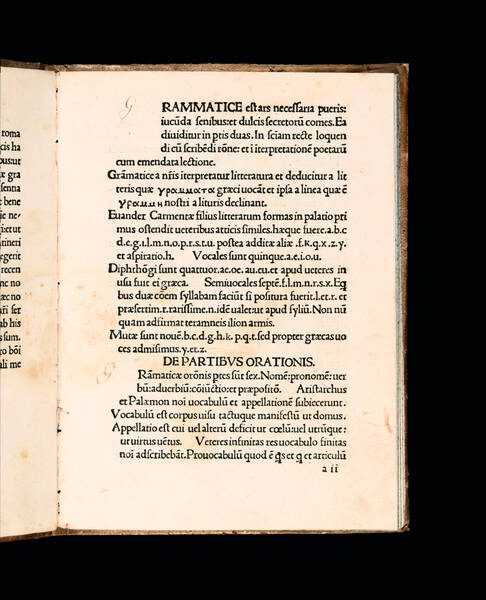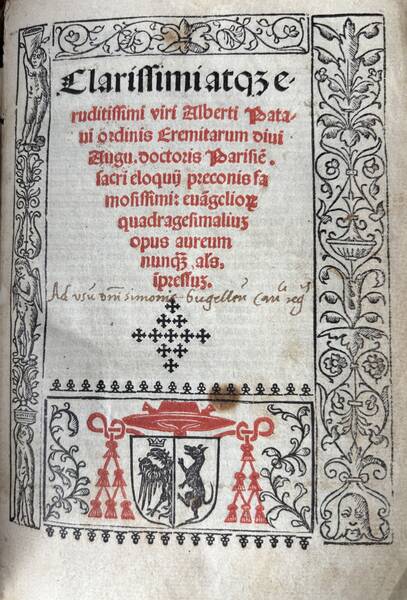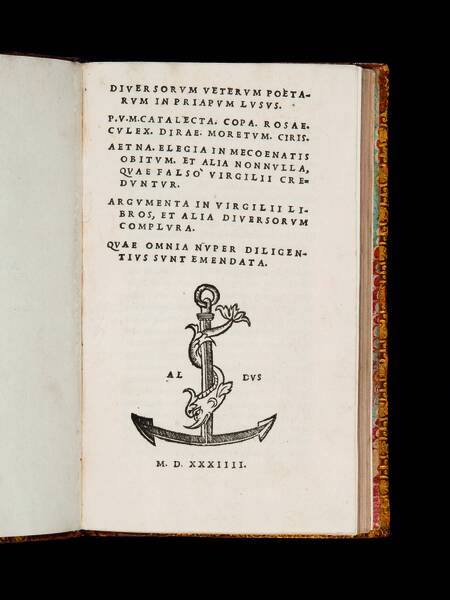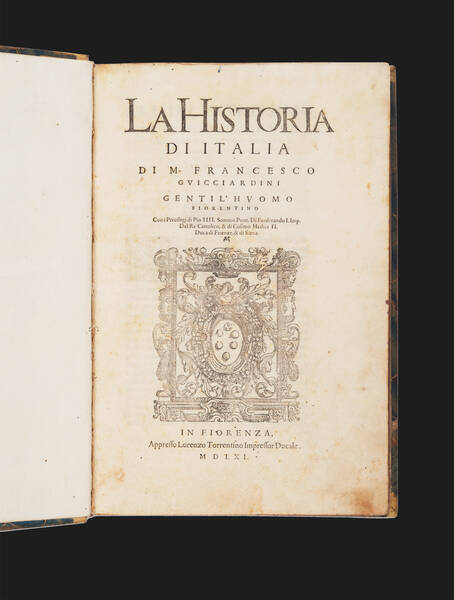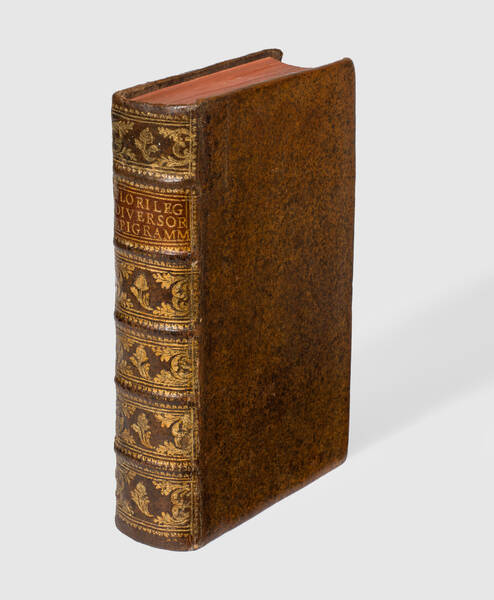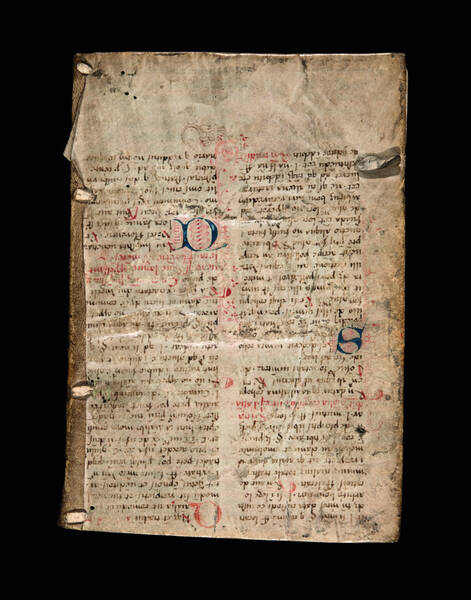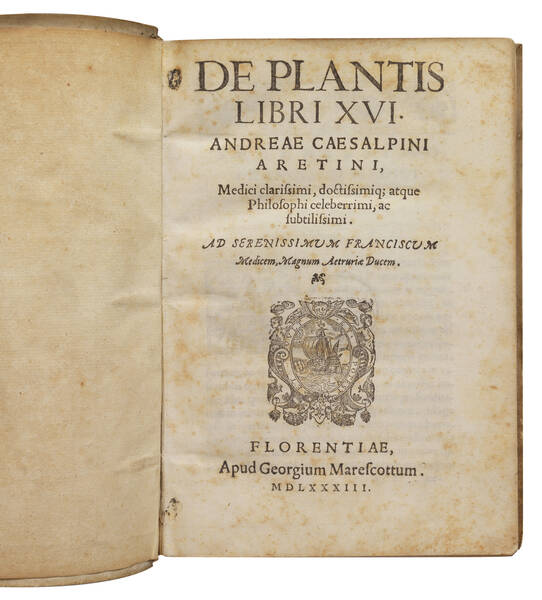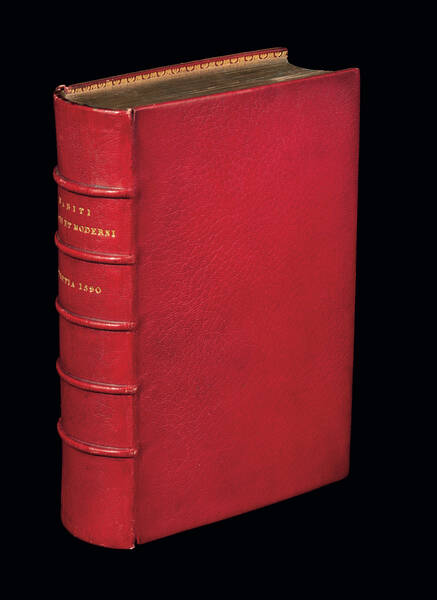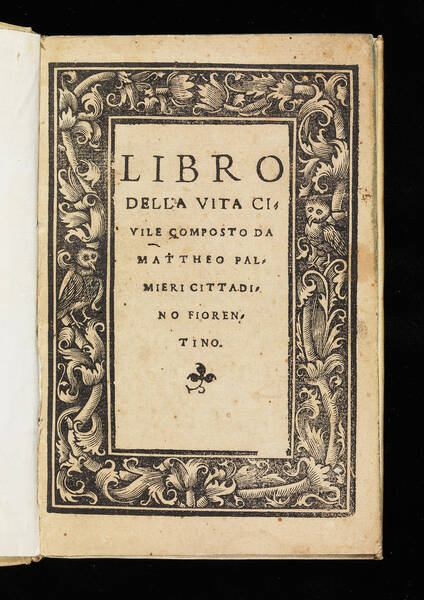GUEVARA, Antonio de, ROSEO, Mambrino (trans.). Institutione del Prencipe Christiano, di Mambrino Roseo.
Roma, nella contrada del Pellegrino per madonna Girolama moglie che fu del q. Baldassarre de Cartolari., 1543.Quarto (210 x 138 mm.), [4], 154, [2] leaves. Contemporary black moroccoover pasteboard, panels on side in gilt and blind with central roundel, “Venetian apple”tools on corners, spine with alternating single and double bands, compartments tooledin blind, black edges. Extremities of binding slightly rubbed, head and foot of spine chipped but a very fine copy in itsfirst binding.
The scarce first edition of the Italian translation of this most influential and much reprinted ‘mirror for princes'. The work was first published in Castilian as Relox de Príncipes in Valladolid in 1529 by the Franciscan Antonio de Guevara (1481-1545), court historiographer of the Emperor Charles V. Addressed to a wider audience, it had as a fictional protagonist the Philosopher-Emperor Marcus Aurelius, and was subdivided into three sections: the Prince's Christian faith, his relationship to his wife and children, and his government.The Italian version, by the prolific translator Mambrino Roseo da Fabriano, presented a selection from the original, and an adapted title echoing Erasmus's Institutio Principis Christiani (Buescu, ‘Corte', 93). Its success is proved by the swift appearance of a second edition, printed in Venice in the same year, and of 20 others, until as late as the 1590s.The Institutione is subdivided into sections which gather anecdotes from classical sources, with exempla from the lives of illustrious princes of antiquity. Among the main topics are the origins of tyranny (from ambition), the prince's attitude towards poverty and misery, the sad condition of his office, the choice of tutors for his children, the abhorrence of flatterers, and the importance of patience. There are also a few fascinating sections on the importance of women in the life and career of men in power – e.g., how princesses should love their husbands, how pregnant women of state should be looked after – and even on the characteristics that should become the nurses of scions: ‘wise Princes should choose nurses […] that be good orators, and learned, if possible, and let it not sound surprising, as if the past produced knowledgeable Women, such are still to be found, though more rarely, in modern times' (p.47).WorldCat locates no copies in the US or the UK.
EDIT16 CNCE 22147. Not in Brunet.A.I. Buescu, ‘Corte, Poder e Utopia: O Relox de Príncipes (1529) de Fr. Antonio de Guevara e a sua fortuna na Europa do século XVI', Estudios Humanísticos. Historia 8 (2009), 69-101
Other Books
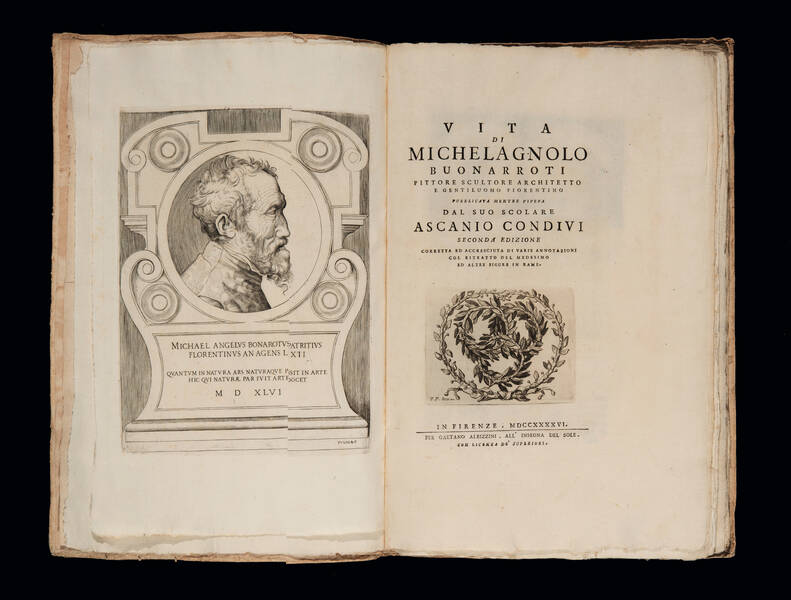
CONDIVI, Ascanio
Vita di Michelagnolo Buonarroti pittore scultore architetto e gentiluomo fiorentino pubblicata mentre viveva dal suo scolare Ascanio Condivi.
SOLD OUT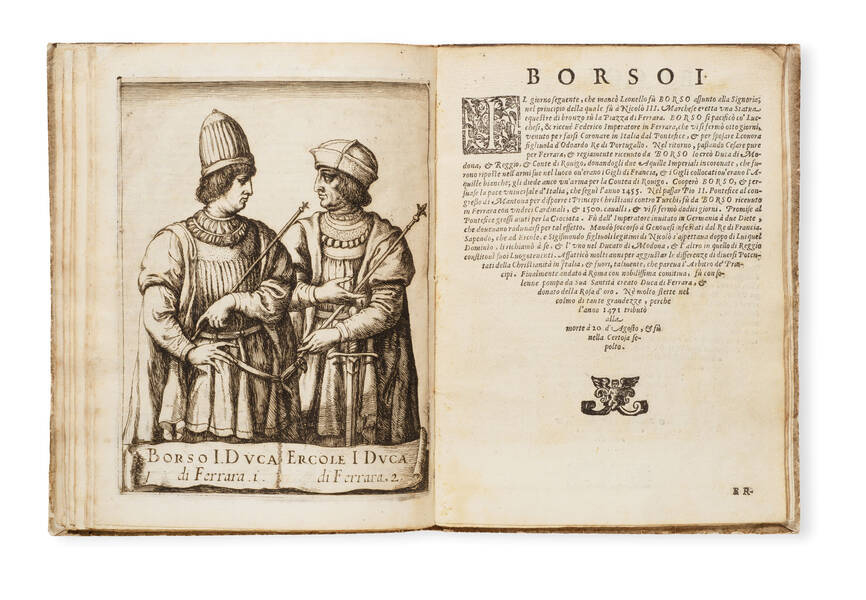
CARIOLA, Antonio; DOINO, Caterino
Ritratti de ser.mi Principi D’Este sig.ri di Ferrara con l’aggionta de loro fatti più memorabili ridotti in sommario.
SOLD OUT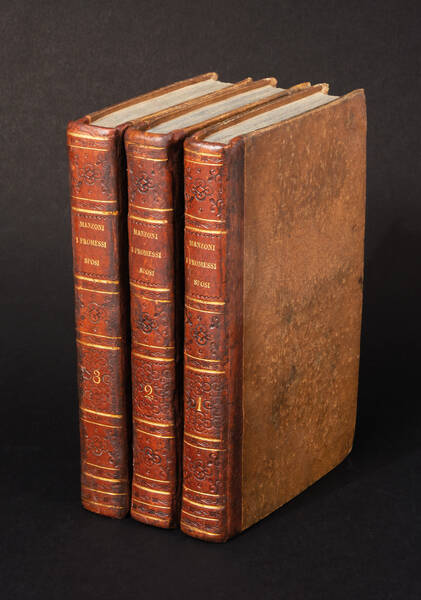
MANZONI, Alessandro
I promessi sposi, storia milanese del secolo XVII scoperta e rifatta da Alessandro Manzoni.
€ 11.500![Tragoediae septem cum commentariis. [Greek] Edited by Johannes Gregoropoulos Cretensis]. Tragoediae septem cum commentariis. [Greek] Edited by Johannes Gregoropoulos Cretensis].](https://www.medariquier.com/typo3temp/pics/a7f4ddada3.jpeg)
SOPHOCLES
Tragoediae septem cum commentariis. [Greek] Edited by Johannes Gregoropoulos Cretensis].
SOLD OUT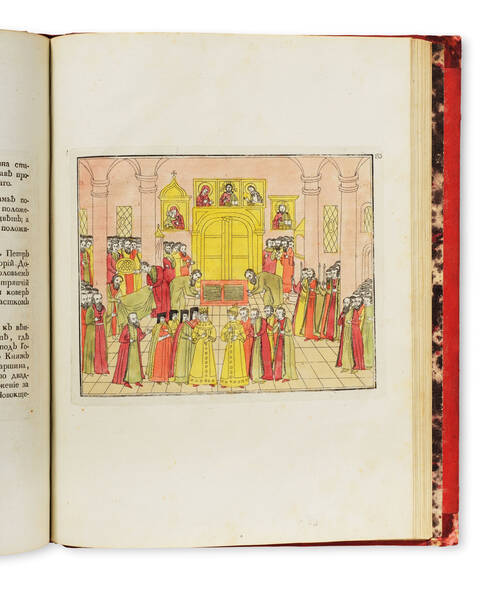
BEKETOV, Platon
Opisanie v litsakh torzhestva, proiskhodivshego v 1626 godu fevralia 5, pri brakosochetanii gosudaria tsaria i velikogo kniazia Mikhaila...
SOLD OUT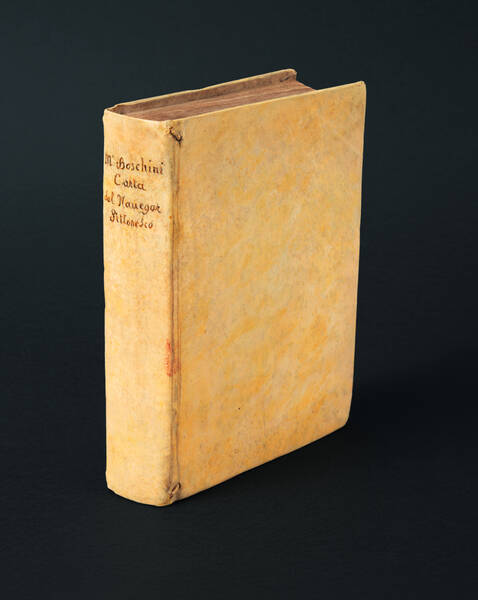
BOSCHINI, Marco
La carta del nauegar pitoresco dialogo tra vn senator venetian deletante, e vn professor de pitura, soto nome d'ecelenza, e de compare. Comparti' in...
€ 7.000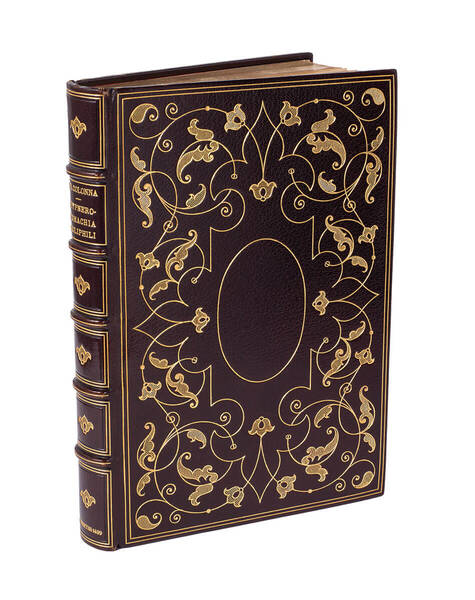
COLONNA, Francesco
Hypnerotomachia Poliphili, ubi humana omnia non nisi somnium esse docet atque obiter plurima scitu sanequam digna commemorat.
SOLD OUT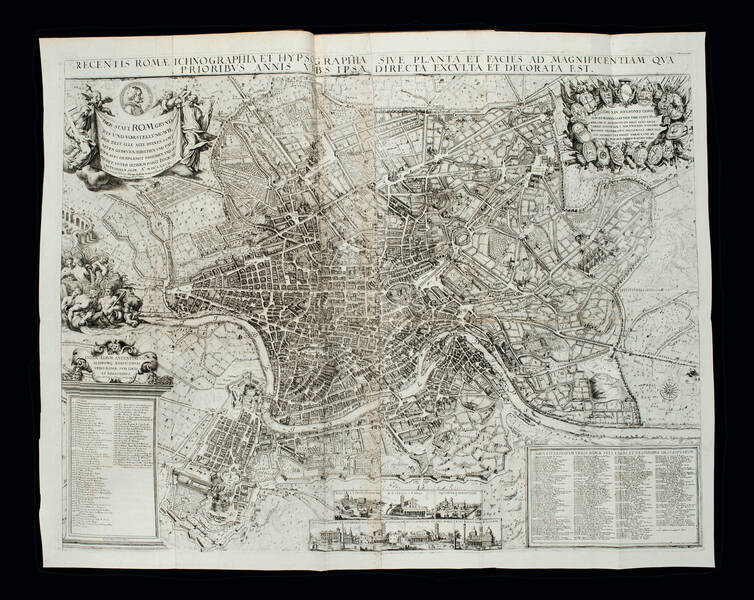
SANDRART, Joachim von
Romae antiquæ et novæ theatrum; sive, genuina ac vera urbis, juxta varios ejusdem status, delineatio topographica.
SOLD OUTMEDA RIQUIER rare books ltd.
4 Bury Street St James's
SW1Y 6AB London
Phone +44 (0) 7770457377
info@medariquier.com
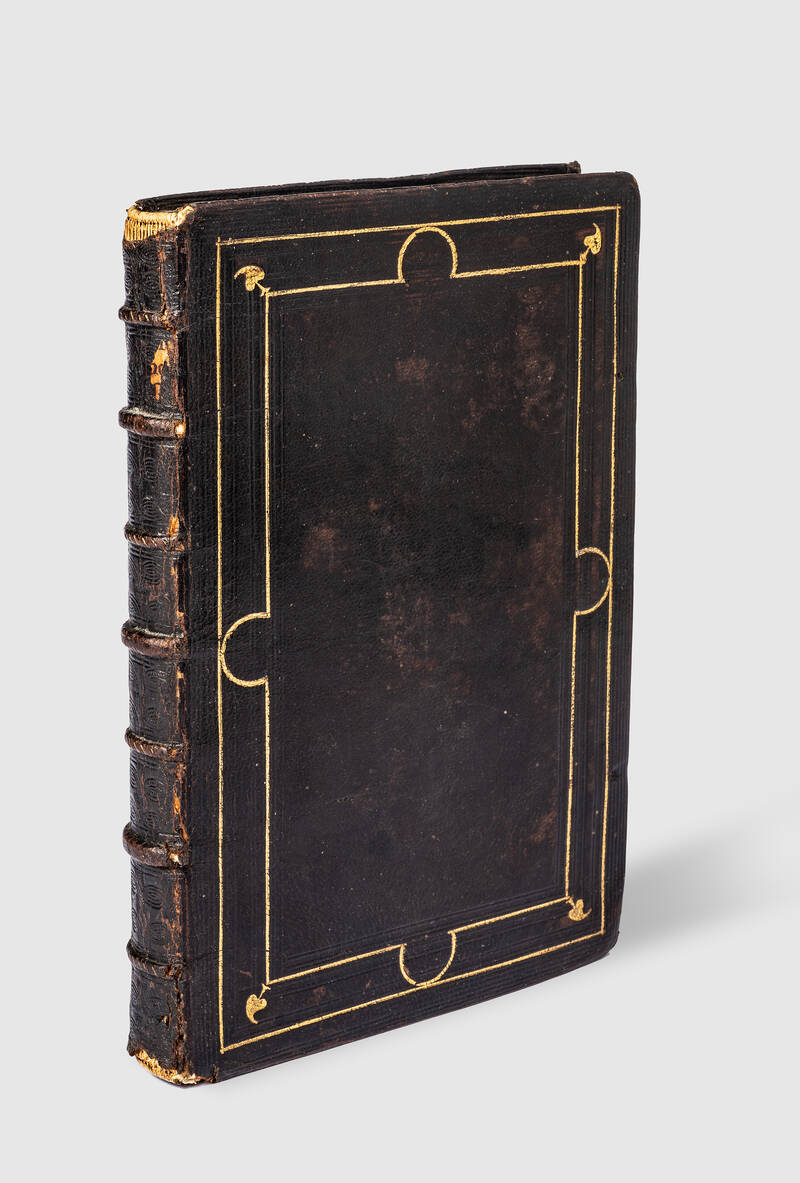
![Opera posthuma [Compendium grammatices linguae hebraeae]. Opera posthuma [Compendium grammatices linguae hebraeae].](https://www.medariquier.com/typo3temp/pics/9e46dbc214.jpg)
